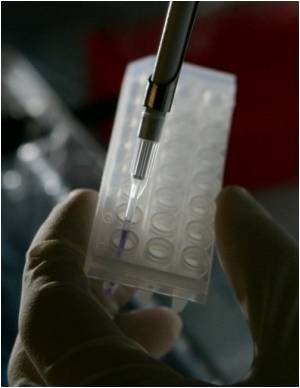A protein signaling pathway that becomes hyperactivated in human sarcoma cells has been discovered by researchers from Mount Sinai School of Medicine

The hyperactive Wnt signaling increased the growth of several subtypes of human sarcoma cells by increasing the expression of CDC25A, a gene previously shown to be deregulated in various types of cancer. Increased protein levels of CDC25A enhances the rate of cell proliferation, and cancer cells often exhibit very high CDC25A protein levels compared to normal cells.
"The prevalence of Wnt signaling hyperactivity in human sarcoma cells gives researchers a potential new target as they develop medications to target human sarcoma," said Dr. Aaronson.
"Since several cancer types show increased CDC25A levels, it is regarded as a good target to generate therapeutic agents to dampen its functions and thus will be an important candidate in future drug development," said Sapna Vijayakumar, PhD, Instructor of Oncological Sciences, Mount Sinai School of Medicine, who was the first author of the study.
Normal Wnt functioning is critical for maintaining tissue homeostasis. Hyperactive (deregulated) Wnt signaling is reported to be one of the early causes of colon cancer, and it is also implicated in several other cancer types.
In many instances, hyperactive Wnt signaling increases the expression of certain genes that cause the cell to proliferate faster than normal. This uncontrolled proliferation, often accompanied by additional changes in gene or genes independent of Wnt signaling, can transform a normal cell into a cancerous one.
Advertisement
Sarcomas are subtyped based on where they occur in the body (in the bone, they are called osteosarcoma, in the smooth muscle they are leiomyosarcoma, in the cartilage they are chondrosarcoma, and so on). Studies suggest that even though sarcomas can occur in any part of the body, they commonly arise from the transformation of mesenchymal stem cells.
Advertisement
Source-Eurekalert











